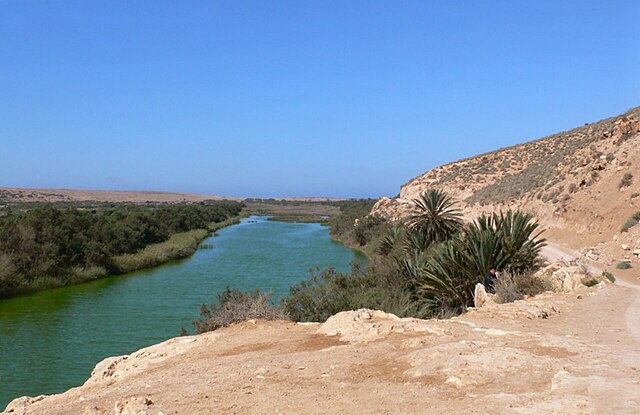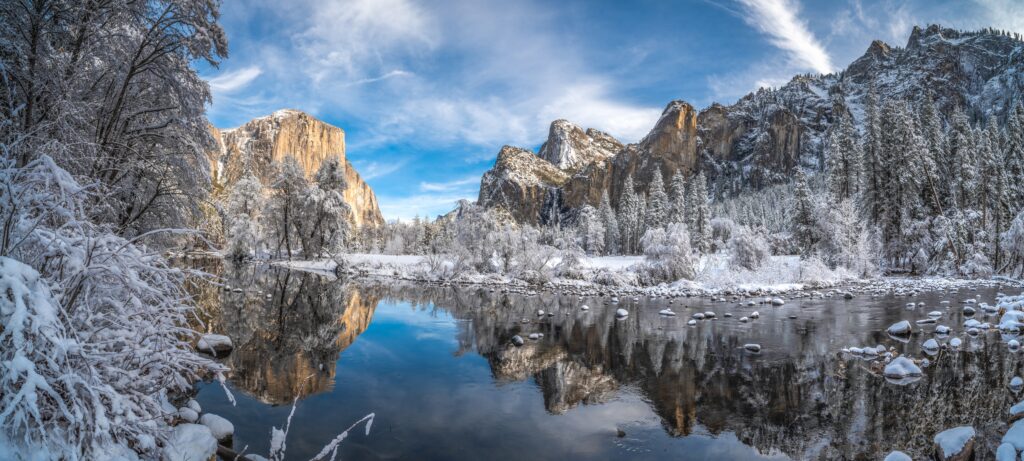
Nestled along the southwestern coast of Morocco, Souss-Massa National Park is a breathtaking expanse of diverse ecosystems, stunning landscapes, and rich biodiversity. Spanning approximately 33,800 hectares, this national park has become a sanctuary for numerous plant and animal species, some of which are endemic to the region. From the sandy beaches of the Atlantic Ocean to the arid landscapes of the Sahara, Souss-Massa offers a unique glimpse into the natural beauty and ecological significance of Morocco.
In this blog post, we’ll delve into the features that make Souss-Massa National Park a must-visit destination, explore its diverse ecosystems, discuss the wildlife that calls this park home, and highlight the cultural significance of the area. Whether you’re a nature lover, an avid birdwatcher, or simply looking for an adventure, Souss-Massa is sure to enchant and inspire.
A Brief History of Souss-Massa National Park
Souss-Massa National Park was established in 1991, primarily to protect the habitats of endangered species, especially the threatened bald ibis. The park is named after the two major rivers in the region, the Souss and the Massa, which play a crucial role in the area’s ecology. Over the years, the park has grown in importance not just as a conservation area but also as a tourist attraction, providing visitors with opportunities to appreciate the stunning landscapes and diverse wildlife.
Ecological Diversity
Coastal Ecosystems
The coastal area of Souss-Massa National Park features a unique blend of sandy beaches, rocky cliffs, and wetlands. The park’s coastline is home to a variety of marine species and supports important ecosystems such as estuaries and intertidal zones. These areas are crucial for the breeding and feeding of numerous bird species, making them a prime location for birdwatchers.
Wetlands and Rivers
The park’s wetlands are vital for maintaining the ecological balance of the region. The Souss River and Massa River provide fresh water to the surrounding ecosystems, supporting an array of plant and animal life. These wetlands serve as a sanctuary for migratory birds and are critical for the breeding of fish and other aquatic species.
Arid and Semi-Arid Regions
Inland from the coast, the park transitions into arid and semi-arid landscapes characterized by rocky outcrops, scrublands, and low-lying vegetation. This region is home to a variety of hardy plant species, as well as mammals such as the Barbary macaque, which can often be seen foraging in the underbrush.
Flora and Fauna
Avian Wonders
One of the primary attractions of Souss-Massa National Park is its avian population. The park is recognized as an important bird area (IBA) and serves as a critical habitat for various species, including the endangered bald ibis. The park is also a stopover for migratory birds, making it a hotspot for birdwatching enthusiasts. Among the notable species that can be observed are:
- Bald Ibis (Geronticus eremita): Once on the brink of extinction, conservation efforts in Souss-Massa have helped increase their population. These striking birds are known for their long, curved beaks and are a symbol of the park’s conservation success.
- Greater Flamingo (Phoenicopterus ruber): Often seen in the park’s wetlands, these graceful birds add a splash of color to the landscape.
- Osprey (Pandion haliaetus): Known for their impressive fishing skills, ospreys can be spotted hunting over the rivers and coastal areas.
Terrestrial Wildlife
Beyond birds, Souss-Massa is home to a variety of terrestrial wildlife. The park’s diverse habitats support a range of mammals, reptiles, and insects. Some notable terrestrial species include:
- Barbary Macaque (Macaca sylvanus): These fascinating primates are often seen in groups, foraging for food. They are the only free-ranging primates in North Africa and are a draw for visitors.
- Gazelles: The park is home to the endangered Dorcas gazelle, which is adapted to the harsh arid conditions.
- Reptiles: The park’s diverse habitats are home to various lizard species, including the Moroccan chameleon, which can often be spotted basking in the sun.
Unique Flora
The park’s vegetation is equally diverse, featuring a mix of coastal, wetland, and desert plant species. Key plant communities include:
- Marsh Vegetation: Dominated by reeds and sedges, these plants thrive in the wetlands and provide critical habitat for birds and other wildlife.
- Dune Vegetation: Coastal dunes support a range of salt-tolerant plants that are specially adapted to the sandy soils and salty air.
Cultural Significance
Historical Context
The Souss-Massa region has a rich cultural history, influenced by various civilizations over the centuries, including the Berbers, Arabs, and French colonizers. The remnants of ancient structures, traditional villages, and agricultural practices can still be seen today, adding a cultural layer to the park’s natural beauty.
Local Communities
The local Berber communities play a vital role in the preservation of the park and its resources. Their traditional knowledge of the land and its ecosystems contributes to sustainable practices that benefit both the environment and the local economy. Visitors to the park have the opportunity to engage with these communities, learning about their culture, traditions, and the challenges they face in a changing environment.
Eco-Tourism
Souss-Massa National Park is an excellent example of how eco-tourism can benefit both conservation efforts and local communities. The park attracts visitors from around the world who come to enjoy its natural beauty and biodiversity. Entrance fees and guided tours contribute to conservation programs and provide income for local families, fostering a sense of stewardship for the environment.
Activities and Experiences
Birdwatching
One of the primary reasons to visit Souss-Massa National Park is for birdwatching. With over 200 species of birds recorded in the park, enthusiasts can spend hours observing these incredible creatures in their natural habitats. There are several designated birdwatching areas, and guided tours are available for those who want expert insight into the best spots for sightings.
Hiking and Nature Walks
The park offers numerous trails for hiking and nature walks, allowing visitors to explore its diverse ecosystems up close. These trails range from easy walks suitable for families to more challenging hikes for experienced adventurers. Along the way, you can enjoy stunning views of the landscapes, discover unique plant species, and possibly encounter local wildlife.
Photography
For photography enthusiasts, Souss-Massa is a dream destination. The dramatic landscapes, vibrant flora, and diverse fauna provide endless opportunities for capturing stunning images. The best times for photography are during sunrise and sunset when the lighting adds a magical quality to the scenery.
Cultural Experiences
Engaging with local Berber communities can enhance your visit to Souss-Massa. Consider participating in traditional cooking classes, handicraft workshops, or guided tours that highlight the region’s cultural heritage. These experiences not only enrich your understanding of the area but also support local artisans and sustainable practices.
Conservation Efforts
Challenges Facing the Park
Despite its ecological significance, Souss-Massa National Park faces several challenges, including habitat loss, pollution, and the effects of climate change. Overgrazing by livestock, illegal hunting, and human encroachment are significant threats to the park’s biodiversity. Additionally, rising sea levels and changing weather patterns pose risks to the delicate coastal ecosystems.
Conservation Initiatives
To combat these challenges, various conservation initiatives have been implemented within the park. These efforts include habitat restoration projects, community engagement programs, and educational campaigns aimed at raising awareness about the importance of biodiversity and sustainable practices. Collaborations with local and international organizations have also strengthened conservation efforts, ensuring the protection of endangered species and their habitats.
Community Involvement
Local communities are vital to the success of conservation initiatives in Souss-Massa. By involving residents in decision-making processes and providing them with alternative livelihoods, conservation programs have fostered a sense of ownership and responsibility towards the park. This collaborative approach has proven effective in promoting sustainable practices and reducing human-wildlife conflict.
Visiting Souss-Massa National Park
How to Get There
Souss-Massa National Park is accessible from several major cities in Morocco. The nearest city is Agadir, located approximately 40 kilometers to the north. From Agadir, you can rent a car or take a taxi to reach the park entrance. The park is well signposted, and guided tours are available for those who prefer a more structured visit.
Best Time to Visit
The best time to visit Souss-Massa National Park is during the spring (March to May) and fall (September to November) when temperatures are milder, and wildlife activity is at its peak. During these months, migratory birds are often present, making it an excellent time for birdwatching.
Practical Tips
- Bring Binoculars: If you’re interested in birdwatching, a good pair of binoculars will enhance your experience.
- Wear Comfortable Footwear: The park has various trails, so comfortable walking shoes are essential.
- Stay Hydrated: Bring plenty of water, especially if you plan to hike or explore the park extensively.
- Respect the Environment: Follow park regulations, stay on designated trails, and avoid disturbing wildlife.
Conclusion
Souss-Massa National Park is a hidden gem in Morocco, offering visitors a unique opportunity to experience the country’s natural beauty and rich biodiversity. From its diverse ecosystems and avian wonders to its cultural significance and conservation efforts, the park is a testament to the importance of preserving our planet’s natural heritage. Whether you’re an avid birdwatcher, a nature enthusiast, or simply seeking a tranquil escape, Souss-Massa invites you to explore its wonders and connect with nature in a profound way.
